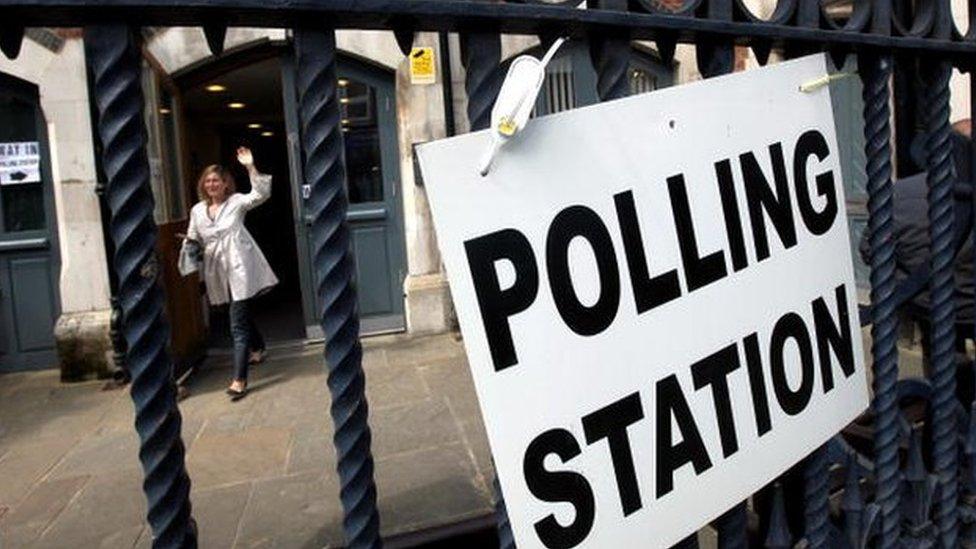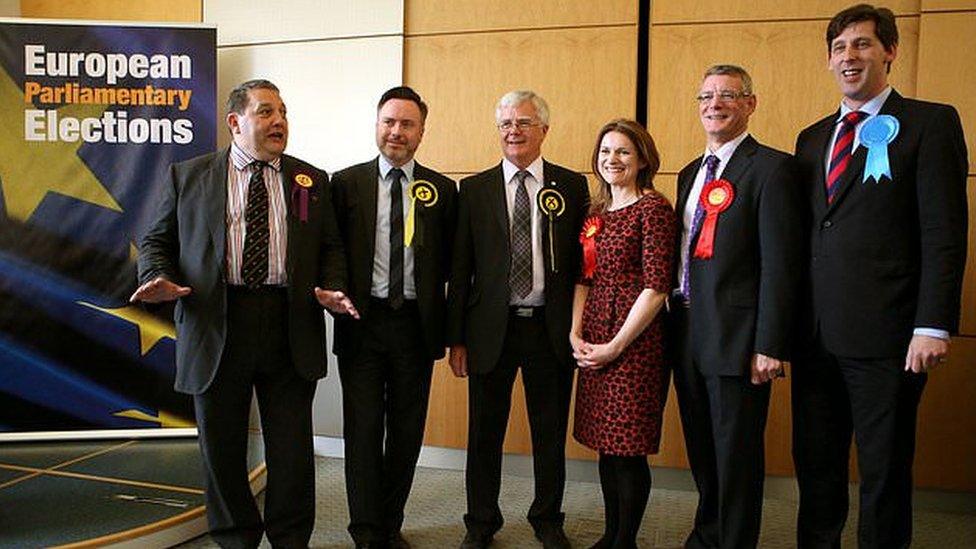Is Scotland ready for EU elections?
- Published
- comments

If Brexit is not resolved soon, the UK could have to take part in European Parliament elections
It is the election that was not (and is still not) supposed to happen. Brexit was to exempt Scotland and the rest of the UK from taking part.
But delays to our EU departure mean the 2019 European Parliament elections are still in the diary for 23 May. Scottish parties are busy preparing for the contest knowing that it could still be cancelled.
It is, therefore, the mibbes aye, mibbes naw election.
Whether or not it goes ahead depends, in part, on how Theresa May gets on at the special EU summit on Brexit in Brussels.
The prime minister's asking to delay Brexit until 30 June, with the option of pulling out earlier if a deal and the necessary legislation is approved by MPs.
If that happens by 22 May, Mrs May has said the European elections would not go ahead in the UK.
The terms of any Brexit extension must first be agreed by all 28 EU countries.
The SNP was first among the Scottish parties to seek candidates for EU elections back in January, just in case they might be required.
Sitting MEPs Ian Hudghton - the party president - and Alyn Smith are both standing for re-election.
They hope to be among the three men and three women chosen by electronic ballot around the time of the SNP conference.
It's thought the former MSP and minister Aileen MacLeod and Mr Smith's chief of staff, Laura Rayner, have also put their names forward.

Four of the group of Scottish MEPs elected in 2014 are seeking to be on the ballot paper again in 2019
The UK's longest serving MEP, David Martin, with 35 years experience, has agreed to stand again for Scottish Labour.
He will top the party's list. Other potential candidates have until 10 April to put their names forward. A special panel of Scottish and UK party bosses will then interview and select five more hopefuls.
The second placed candidate will be a woman, replacing Catherine Stihler who stood down as an MEP last month.
Scotland's newest MEP, Nosheena Mobarik, is expected to be the main candidate for the Scottish Conservatives.
She replaced Ian Duncan in the European Parliament in 2017 when he quit to take up a seat in the Lords and become a Scotland office minister.
The Tories second placed candidate is likely to be Iain McGill, who campaigned for Vote Leave in 2016. Others will be invited to put their names forward this week for consideration by the party's management board.
The former leader of UKIP Scotland, David Coburn, is one of Scotland's six MEPs. He is expected to stand for Nigel Farage's Brexit party this time.
The Scottish Greens, who have never had an MEP, have made it their goal to replace him. Their members will whittle down a list of seventeen potential candidates over the next two weeks.
Scottish Liberal Democrat members are currently ranking twelve potential candidates, with party convenor, Sheila Ritchie, considered the favourite.
'Contingency preparations'
The UK government has formally tabled the legal order to allow European elections to go ahead on 23 May.
It has also written to returning officers offering to reimburse "reasonable and appropriate spending on contingency preparations".
The Scottish government has raised concerns that EU nationals from outside the UK might not have enough time to complete the appropriate paperwork to take part in the poll.
Scotland has six of the UK's 73 seats in the European Parliament.
These seats are to be shared between the EU's 27 remaining states if and when the UK leaves.
The EU has made clear that the UK must take part in this year's elections if Brexit has not happened by the time they take place.